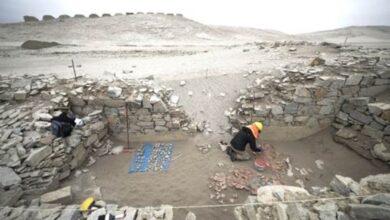Super-charging drug development for COVID-19
Researchers are ramping up production of a promising drug that has proven effective in obliterating SARS-CoV in cellular cultures. The team hopes that the drug might also be effective in the fight against SARS's close genetic cousin, the novel coronavirus (COVID-19).

Cell-free production method scales up yield by 5,000 times. / Photo: Unsplash – Ashkan Forouzani
EurekAlert | Northwestern University
Listen to this article
Leer en español: ¿Estamos cerca de una vacuna para el COVID-19?
Led by Northwestern University and ShanghaiTech University, the team has produced the promising molecule, called valinomycin, in a cell-free system. With this approach, they increased production yields more than 5,000 times in just a few rapid design cycles, achieving higher concentrations of the molecule than achieved previously in cells.
"Because we use cell-free systems, we can optimize production faster than in cells to further increase yields," said Northwestern's Michael Jewett, who co-led the study. "For example, pathway optimization cycles take days rather than weeks or months, and this speed could be ever so important when dealing with a pandemic like the coronavirus COVID-19 outbreak."
The research was published online recently in the journal Metabolic Engineering and will appear in the July 2020 print issue.
Jewett is the Walter P. Murphy Professor of Chemical and Biological Engineering in the McCormick School of Engineering and director of Northwestern's Center for Synthetic Biology. He co-led the work with Jian Li, an assistant professor in the School of Physical Science and Technology at ShanghaiTech.
Also read: How LATAM would cope with the Coronavirus recession
Jewett leads multiple projects that use cell-free biotechnology to accelerate COVID-19 therapeutics. His group takes the molecular machinery out of cells, and then uses that machinery to make a product, such as therapeutics, in a safe, inexpensive and rapid manner. The idea is akin to opening the hood of a car and removing the engine, which allows researchers to use the engine for different purposes, free from the constraints of the car.
A naturally occurring peptide, valinomycin has recently emerged as a potential antiviral to treat SARS. Jewett imagines using cell-free synthetic biology to find similar molecules or to modify valinomycin to make it safer and more potent.




